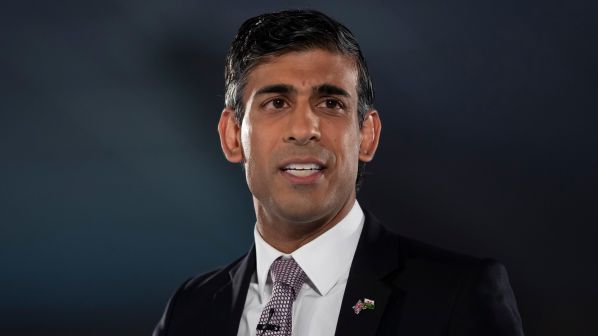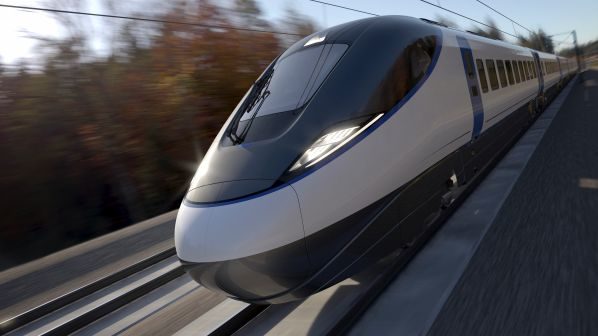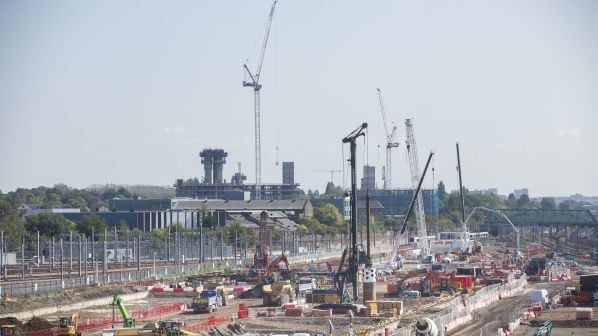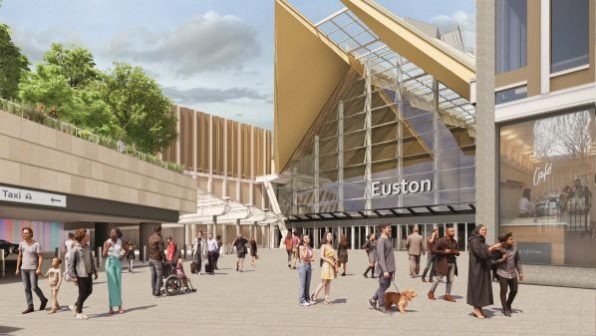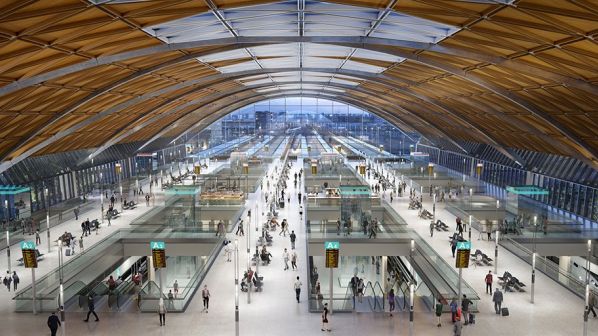EXTENDING high-speed rail to Manchester under the second phase of HS2 has been a consistent commitment by successive governments during the checkered history of the project that was announced in 2012. The Conservative Party, which has been in power since 2010, has placed HS2 at the centre of its “Levelling Up” agenda to close the economic gap between north and south. Yet prime minister, Mr Rishi Sunak, is now actively toying with the idea of scrapping the second phase of the project.
Speculation about the project’s prospects began to grow on September 14 when details emerged of a meeting between Sunak and the chancellor, Mr Jeremy Hunt, to discuss the rising cost. The government subsequently refused to guarantee the future of the high-speed line extension. A spokesperson suggested that ministers would need to balance the interests of “passengers and taxpayers.”
The government has continued to refuse to rule out scrapping the project. Speaking on BBC television on September 24, defence secretary, Mr Grant Shapps, a former transport secretary, said that it “would be crazy” not to assess whether the full HS2 rail project remains viable. Sunak said on September 25 that he would not comment on “that type of speculation” about the future of the project.
“What I would say is we're absolutely committed to levelling up and spreading opportunity around the country,” he said.
Around £2.3bn has reportedly already been spent on the second phase of the project, but with the government looking to save money, it is reluctant to commit to the estimated £34bn cost of building the 142km extension. And with Hunt reportedly looking to deliver tax cuts ahead of the next election, which is scheduled by the end of 2024, binning this phase of HS2 is thought to be one way of paying for it.
What has gone wrong?
Delays and the project’s spiralling costs are the government’s primary concern. Originally budgeted at £33bn in 2010, the cost has since surged to at least £71bn. A revision close to £90bn is expected to be announced in coming weeks, according to The Financial Times while there have been suggestions that the actual cost for the full project could eventually exceed £100bn.
Construction on the London - Birmingham phase of the project formally started in April 2020 and the first trains are expected to run here between 2029 and 2033, which compares with 2026 when the project was launched. Three trains per hour are expected to use the new high-speed line between Old Oak Common and Birmingham Curzon Street initially, before an expansion of services that will continue on north from Birmingham on the West Coast Main Line.
The cost of Phase 1 is estimated at £40.3bn in 2019 prices. The government has instructed HS2 Ltd to reduce the price to align with this estimate after the company overseeing the project admitted it was likely to exceed this budget. More than £20bn has already been spent on the first phase.
The government has already attempted to ease HS2’s cost burden. It decided to delay the start of work on the 58km Phase 2a from Birmingham to Crewe by two years in March, citing the impact of “significant inflationary pressure and increased project costs” for the decision. This link is now not scheduled to open until 2034. The 84km Phase 2b extension to Manchester was also pushed back by two years and is scheduled for completion in 2041.
The government said that development work will continue on Phase 2a during the two-year delay and the commitment to expand Crewe station will remain. However, analysis has shown that deferring this phase could cost taxpayers £366m and actually extend the delay to three years as supply chains gear up to deliver the work.
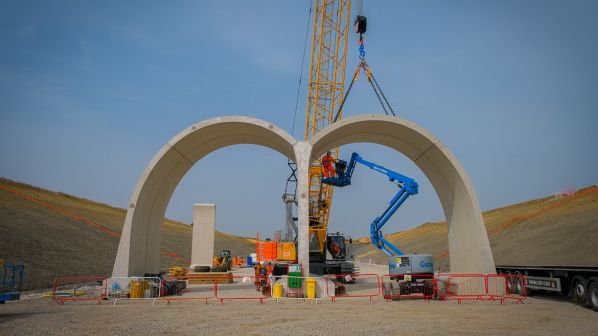
The government also confirmed in March that delivery of the extension from Old Oak Common to Euston would be delivered alongside the construction of the high-speed line to Manchester. The estimated cost of this element of the project had surged to £4.8bn, prompting the pause. HS2 Ltd, the government-run company overseeing the first phase of the project, is expected to produce a single option for Euston by the end of the year with the aim of going through approvals and securing funding by end of the pause in 2025.
The National Audit Office (NAO) said in March that pausing this element of the project will provide the DfT and HS2 Ltd with the necessary time to put the HS2 Euston project on a more realistic and stable footing. However, it warned that deferring spending to manage inflationary pressures will lead to additional costs and potentially a more expensive project overall, and that it will need to be managed closely.
HS2 Ltd, has regularly been criticised for lax project management and for allowing costs to spiral out of control. The cost situation is not helped by the addition of tunnelling in the first phase, in particular through the Chilterns to appease local concerns over the impact of the project.
The government already scaled back the project by scrapping the proposed 198km Eastern leg from the East Midlands to Leeds in 2021 in favour of upgrades to the existing network.
The backlash
Dissent at the government’s reported rethink has been strong. Former prime minister, Mr Boris Johnson, has described the idea as “total treasury-driven nonsense” and that it made no sense “to deliver a mutilated HS2.” Abandoning the link would be a “gross act of vandalism” according to former chancellor, Mr George Osborne. Writing alongside Lord Heseltine in The Times, the former Conservative MPs said that any decision to scrap the project would be short-sighted. They urged Sunak not to do it.
“How could you ever again claim to be levelling up when you cancel the biggest levelling-up project?,” they wrote. Greater Manchester mayor, Mr Andy Burnham, similarly accused the government of treating the north as “second class” citizens when it comes to transport.
A letter addressed to Sunak and signed by the leaders of 21 businesses on September 22, which collectively “employ thousands of people in the UK,” urged the prime minister to end the speculation and recommit to HS2 from Manchester to Euston.
They state that the renewed speculation over the future of the project “has been deeply alarming and destabilising to the industry as a whole.”
“It is a particular blow to the 30,000 people working to deliver this vital infrastructure each and every day, and the many thousands of businesses in the North West who are currently investing in the area based on HS2 reaching Manchester,” they write.
The leaders add that the reputation of the UK as a place to do business and invest has already suffered in recent years.
“Every change of scope both adds to the costs - the two-year deferral alone will cost at least £380m, with hundreds of jobs already being cut because of that decision,” the letter states. “At the same time, it reduces the benefits of the scheme, weakening the business case.
“Perhaps most important of all, from a business perspective, these constant changes to a flagship infrastructure project add to the perceived risk of the UK as a place to do business, as well as adding to the cost of each and every infrastructure project in the future. At a time when we need to compete globally harder than ever, and we need to deliver infrastructure more efficiently than in the past, we cannot overstate how harmful this is.”
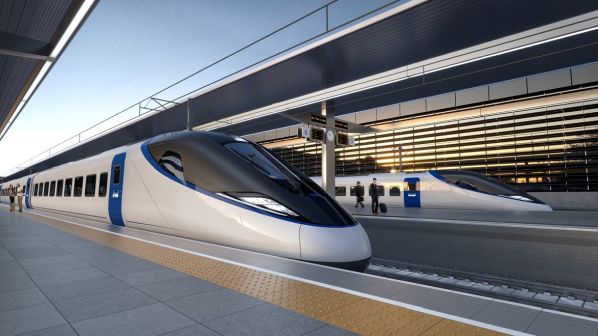
Speaking on BBC Radio on September 23, chair of the National Infrastructure Commission, Sir John Armit, acknowledged the need to curb the cost of the line, but added that “there are massive benefits to the economy by continuing.”
“This project from the beginning has been about capacity,” Armitt said. “It’s about levelling up, improving connectivity between London, the largest city in the UK and the two most substantial cities in the UK.
“If we don’t continue, what are we saying to the rest of the world? What are we saying to all those investors that we want to bring into the UK? Here’s a country which sets itself ambitions and then runs away when it starts to see some challenges. We have to meet the challenges.”
He was countered on the programme by Lord Tony Berkeley, a long-time opponent of HS2. Berkeley questioned the capacity benefits of HS2, the rationale for the project. He also said that Old Oak Common should be the terminus for the truncated line. He favours allocating the the savings from axing the extension to Euston to infrastructure manager Network Rail to support projects such as electrification.
“I think the time has come to review the whole thing, to scrap most of it, and reallocate funding to the railways that people want to use every day,” Berkeley said.
What might happen next?
The bill for phase 2a of the project has already received royal assent in parliament, meaning that it would be hard to cancel it outright. The legislation for phase 2b is currently in the committee stage of the commons.
The Conservative Party conference is taking place in Manchester next week, meaning that a decision on whether the government will scrap the project is likely to take place before the party convenes. Whether the dissenting voices will have any sway remains to be seen. Sunak showed with his decision to pushback on several of Britain’s environmental targets, including postponing the end of selling petrol and diesel cars from 2030 to 2035, that he is willing to go against the recommendations of industry and many of his peers.
Scrapping the project will also raise questions over the future Transpennine Route Upgrade project, which relies on HS2 phase 2 infrastructure, specifically between Manchester Airport and Manchester Piccadilly.
If the government does decide to proceed, it will face questions over how it will bring down costs. This could include scaling back the specifications for the 360km/h railway. Reviewing how the project is managed is also very likely.
Professor John Kelsey, a professor of construction and project management at University College London, says the British rail sector is suffering from outdated practices on infrastructure. He told the AFP that innovative procurement and better collaboration between contractors could “lead to a long-term reduction in costs, or at least increase efficiency.”
